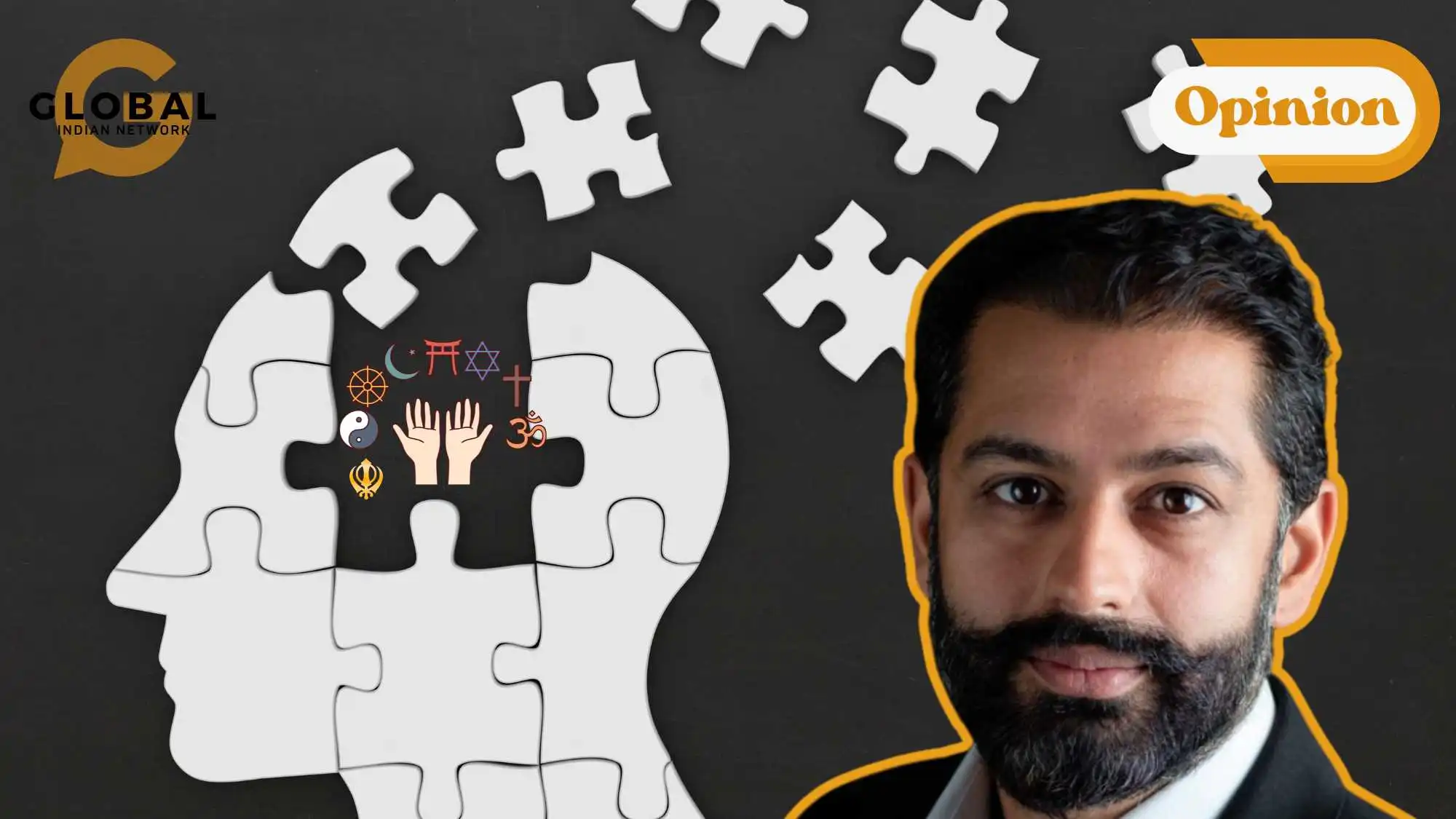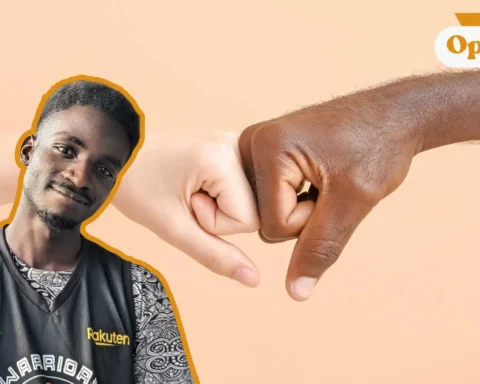Growing up, faith and religion were a powerful influence in my life. My earliest memories are interwoven with stories and communal gatherings that defined our religious practices. These experiences were more than spiritual moments; they were formative elements shaping my understanding of right and wrong, belonging, and purpose whilst posing the questions of equality.
I recall the warmth of candlelight and sprinkling of Amrit water across the home during the morning Japji Sahib, the sense of community in shared experiences, and the comfort of familiar stories that connected me to something larger than myself on the Sunday Punjabi school followed by Chips and beans in the Langar hall of Soho Road Gurdwara. These memories are vivid not only because they were frequently repeated but also because they carried such emotional weight.
It wasn’t until later, when I encountered different religions and philosophies that I began to question how these early experiences had shaped me. What struck me was how differently others viewed the world, shaped by their unique religious narratives, even those of my own faith. This realisation sparked a deep curiosity — a desire to understand how much of our identity is influenced by the stories we are told and the experiences we have. In a world where open conversation is being gradually eroded, Could these important narratives hold the key to our understanding of what it means to be human?

Travelling Through Different Worlds: A Journey Across 71 Countries
This desire to understand the human experience beyond my own upbringing led me on a journey across seventy-one countries. I met people from all walks of life — from those in remote tribal communities to heads of state, royalty, and influential leaders. From billionaires to those in absolute poverty, each encounter revealed new dimensions of identity shaped by different memories, beliefs, and experiences.
During the Ebola crisis in Sierra Leone, I spent time with local communities deeply affected by the devastation. In the midst of absolute destruction, I observed how they interpreted global events through the lenses of their traditions and rising religious fervour. The crisis brought a complex interplay of culture and faith to the forefront.
The rise in religious activity was often a response to the uncertainty and fear brought by the crisis, blending with traditional practices to create a unique interpretation of the calamity. It was striking to see how these communities’ sense of identity and their responses to global events were deeply intertwined with their cultural heritage and evolving religious beliefs. It was also interesting to see how others in the same communities had adopted a critical view, placing the blame on the over-reliance on integrity in the older generation – something that was passed down from both cultural and traditional values that once supported the region as a derivative of the Ubuntu philosophy.
Everywhere I went, I saw the profound role religion played in shaping memory and identity. The way a story is told, a ritual performed, or a prayer recited — these are not just acts of devotion but acts of memory-making, encoding beliefs and values into the very fabric of one’s being. Yet, I also saw how exposure to new ideas and experiences can open minds, soften boundaries, and create unexpected connections.
The Neuroscience of Belief: “The Breaking Bad” of the Mind!
As I delved deeper, I explored the science of memory and its role in shaping belief systems. Many years ago, I studied Neuro linguistic programming and Hypnotherapy, part of which was understanding the role of Neuroscience. I learned that memory formation involves complex processes, including long-term potentiation (LTP). LTP strengthens the connections between neurons that are frequently activated, making it easier to recall certain information and experiences. This principle is not just about retaining facts but also about how we internalise beliefs and values.
When we engage in religious rituals, read religious texts, or reflect on religious concepts, we are reinforcing specific neural pathways. These pathways become etched in our brains, turning abstract ideas into physical connections between neurons. This process shapes not only how we remember our beliefs but also how we interpret the world around us. For me, understanding this was both fascinating and humbling — to realise that our sense of self can be so deeply influenced by neural connections was as eye-opening as it was frightening. Just consider the implication that these etched neuro pathways have in interpreting the actions of those who follow different ideologies to our own.

What If…? Imagining a Different Kind of Memory
But what if those neural pathways had been shaped differently? What if, from an early age, I had been exposed to a wider array of beliefs and ideas? Would I see the world differently? Would I relate to others with greater openness and empathy? And what if this wasn’t just true for me but for entire societies?
The brain’s plasticity, especially during childhood, suggests that early exposure to diverse perspectives might foster more flexible and inclusive thinking. I envision a world where children learn not only the stories of their own faith but also those of others — a world where they are encouraged to explore, question, and understand multiple ways of seeing the world. Could this lead to a generation that is more open-minded, more connected, and better equipped to solve global challenges?
My own journey exposed me to different beliefs and ideas, profoundly shifting my understanding of identity. I began to see myself not just as a member of a particular faith or culture but as part of a broader, interconnected human family. This shift was not easy; it required confronting my own biases, listening deeply to others, and constantly reminding myself that my perspective was one among many. But it was worth it. Embracing a broader range of ideas made me more compassionate, more curious, and more willing to engage meaningfully with the world. A world that equally provides me hope as it does despair at seeing how identity is becoming weaponised for profit and power.
Imagine if this shift were replicated on a larger scale. If societies worldwide adopted a similar approach, we might see a transformation in how we relate to one another. Conflicts rooted in religious and cultural differences could give way to new forms of cooperation and understanding. Our collective memory, enriched by diverse experiences, could guide us toward a more inclusive and empathetic global identity. To take it further, what if we treated religious identities as interpretations of local culture in the times in which they originated? Would it provide an opportunity for these ideas to evolve, coming to a consensus that all are born equal? (I may explore this in a follow-up article).
The Road Ahead: A Personal Challenge
Of course, this vision is not without its challenges. Rethinking identity, memory, and religion requires a fundamental shift in education, socialisation, and governance. It means moving beyond familiar narratives and opening ourselves to the possibility that our way of seeing the world is just one of many. This is why open discussion around religion, faith or ideas, in my opinion, needs to remain open. The moment we brand ideas as phobic is the moment we destroy the neuropathways for greater thinking in the future.
For me, this is both exciting and daunting. It is a call to rethink not only my own identity but also the role I play in shaping our future. It is an invitation to imagine a world where memory is not just a repository of past experiences but a foundation for a more connected, compassionate future. It is a reminder that while we are products of our past, we have the power to shape the future — one memory, one idea, and one conversation at a time.
As I look ahead, I ask a simple, yet profound question: what kind of world do we want to remember? And how do we begin to create it today?

Have an opinion on this matter? Let us know your thoughts in the comment section below. If you want us to feature your opinion piece, send it to larra@globalindiannetwork.com.









